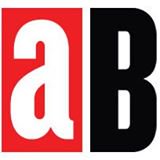Accounting might not be your favorite topic, but it’s a necessary part of running a legal and functional business. You must report your business’s income and expenses, report payments to workers, and more. You need to know about many accounting forms for small business.
Accounting forms for small business
Throughout the life of your business, you must report your earnings and expenses to agencies for tax purposes. You might be wondering, What tax forms do I need for a small business? To get the ball rolling, here are a few basic accounting forms you need to know about. Please note that this is not an all-inclusive list of small business tax forms.
Filing business taxes
Every business must file its income taxes to report how much it earned and spent. But, the business accounting forms you file are based on the different types of business structures. You can structure your business as a sole proprietorship, partnership, corporation, or LLC.
Here are the IRS business tax forms required for federal income tax returns:
- Schedule C (Form 1040)
- Schedule K-1 (Form 1065)
- Form 1120
- Form 1120-S
Schedule C (Form 1040), Profit and Loss From Business: If you own a sole proprietorship or single-member LLC, you must report your income and expenses on Schedule C. You then attach Schedule C to Form 1040.
Schedule K-1 (Form 1065), U.S. Return of Partnership Income: If you own a partnership or multi-member LLC, report your income and expenses on Schedule K-1. Then, attach your Schedule K-1 to Form 1065. Each partner must do this to report their share of the business’s income and expenses.
Form 1120, U.S. Corporation Income Tax Return: Use this form to report your income and expenses if you own a corporation, or C Corp. If your LLC is classified as a corporation, use this form.
Form 1120-S, U.S. Income Tax Return for an S Corporation: If you operate as an S Corp, you must report your business’s income and expenses on Form 1120-S. If your LLC is classified as an S corporation, use this form.
If you are self-employed, you also need to file Schedule SE (1040), Self-Employment Tax. Self-employed individuals do not receive salaries. As a result, nobody withholds Social Security and Medicare taxes (FICA tax) from a self-employed individual’s wages. If you are self-employed, you are required to pay self-employment tax. The self-employment tax rate is 15.3%. Report your self-employment liability on Schedule SE.
Filing estimated taxes
You are required to pay estimated taxes on income not subject to withholding. The form you file varies based on whether you are self-employed or not:
Form 1040-ES, Estimated Tax for Individuals: File Form 1040-ES to report estimated taxes if you are self-employed.
Form 1120-W, Estimated Taxes for Corporations: Corporations file Form 1120-W to report estimated taxes.
Claiming deductions
You can claim deductions for many expenses you have, including home office, business use of a car, travel, charitable contributions, supplies, and more.
In most cases, you must deduct certain business expenses on your tax form. But to claim a home office deduction, you need to use a separate form.
